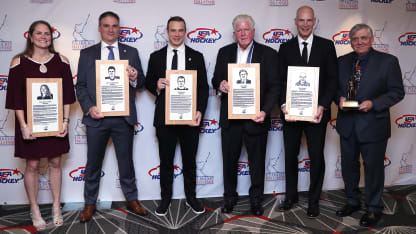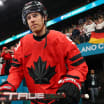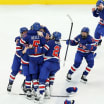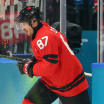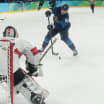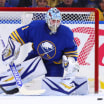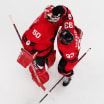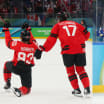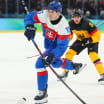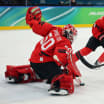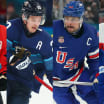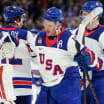BOSTON -- The Dallas Stars had only been in Texas for a single season when Jamie Langenbrunner made his NHL debut in 1994-95 for the franchise that had formerly been the Minnesota North Stars, the team from his home state. He would stay for eight seasons, watching as hockey cottoned onto Texas and Texas began to cotton onto the hockey.
Langenbrunner has seen a vast expansion of the hockey world in his time in the NHL, from his 18 seasons playing for the Stars, New Jersey Devils and St. Louis Blues, to his time in management with the Boston Bruins.
It’s a different USA Hockey than it used to be. And it only pushes to get bigger.
“Having the good fortune of starting my career in Dallas, I got to see from the grassroots there the growth in the South in a nontraditional hockey market,” said Langenbrunner, an assistant general manager for the Bruins. “Having been in management now and watching players, Las Vegas, Texas, Florida, it’s all over the place, which is just awesome for the United States’ growth.
“As a Minnesotan, maybe it’s a little bit hard.”
He laughed.
“USA Hockey has done a wonderful job of spreading it out and really making hockey available in all areas, which can only help our game in the long run,” Langenbrunner said.
Which is why Langenbrunner, Brian Burke and others at the 2023 U.S. Hockey Hall of Fame induction Wednesday were so bullish on the United States, its hockey program and its potential finish in any upcoming international tournaments.
Especially if that includes participation in the Olympics.
“If you look at what USA Hockey’s done, there’s more people in California than there are in Canada, and so we should as a country be catching up and blowing by people and we are,” said Burke, a longtime NHL executive. “We have been. It’s a coin toss now. You go to any international tournament, you put the U.S. group against the Canadian group, which has always been an underdog, now it’s pretty much a coin toss.
“So that’s a major development in hockey.”
Burke and Langenbrunner were inducted into the Hall with former Los Angeles Kings forward Dustin Brown, former U.S. women’s national team forward Katie King Crowley and former official Brian Murphy. Joe Bertagna, who was a college hockey administrator for 40 years, was awarded the Lester Patrick Trophy for outstanding service to hockey in the United States.
The induction ceremony came a day after NHL Commissioner Gary Bettman reiterated plans to hold a four-team, in-season international tournament next season and said that the League continues to work with the International Olympic Committee and International Ice Hockey Federation on participation in the 2026 Milano Cortina Olympics.
“Huge,” Burke said. “I think best on best is the key to ever getting better as a country in any sport. Best on best is the key. That’s the only tournaments I like to watch for scouting purposes.”
Langenbrunner and Brown, who each played in two Olympics, reminisced about their participation, with Langenbrunner comparing it to playing for the Stanley Cup, which he won twice.
Though Brown, for one, acknowledged the difficulty of playing in a midseason tournament. As he put it, “You go from trying to murder Drew Doughty to two days later we’re playing in a game on the same team. It’s tough.
“But the Olympic experience, I think it’s something the NHL players should experience. I also think it’s better for the game to have the very best playing at the very highest levels.”
And they’re optimistic about the United States.
“They’re going to be pretty good, I think,” Langenbrunner said. “The goaltending is where it all starts and there are some pretty darn good American goaltenders right now. Once you start with that, they can obviously put a team together that can compete with anyone and be right up at the top.”
It’s what Brown has seen, too.
“It’s hard to describe how skilled the kids are coming up nowadays,” Brown said. “I have three kids who play competitive hockey and one beer leaguer [and] the skill level of kids coming up and the way they’re developing them here in America now is pretty impressive.
“There’s things that I’m seeing kids do that I’m like, ‘Good thing I retired.’”
But the future of USA Hockey doesn’t only pertain to the NHL.
“It is so much different than when I started,” said King Crowley, who played in three Olympics and now coaches the women’s team at Boston College. “When I started, I played boys. That was all there was. And then as I started to get older, obviously it grew. There were more women’s programs and women’s teams and little girls’ teams and now, I mean, my daughter plays. She’s 10. And there are so many more opportunities for little girls like that.”
The growth and strength lies as much in the strides made in the women’s game as it does on the men’s side, something that Burke, who was named executive director of the players’ union for the Professional Women’s Hockey League in August, noted.
“What I like most is the ice-time fairness,” he said. “When I was a kid, girls didn’t have ice time. Like (former U.S. Olympian) A.J. Mleczko had to lie about her name to get on the boys’ team. So they had a big fight in lots of parts of the country to get quality ice time and equality of ice time.
“The biggest change I’ve noticed is how much the women have improved in the same time as the men. I think the women have improved more. I think that’s a really exciting part of what’s happening in hockey right now.”
And with the PWHL beginning play next month, Burke and King Crowley said they see another boost coming for the women’s game. Instead of a jump every four years, as King Crowley pointed out, it can be more consistent, more regular.
All the time.
“You’re [gosh-darn] right, I do,” Burke said, about seeing an increase. “I think it’ll be immediate.”
